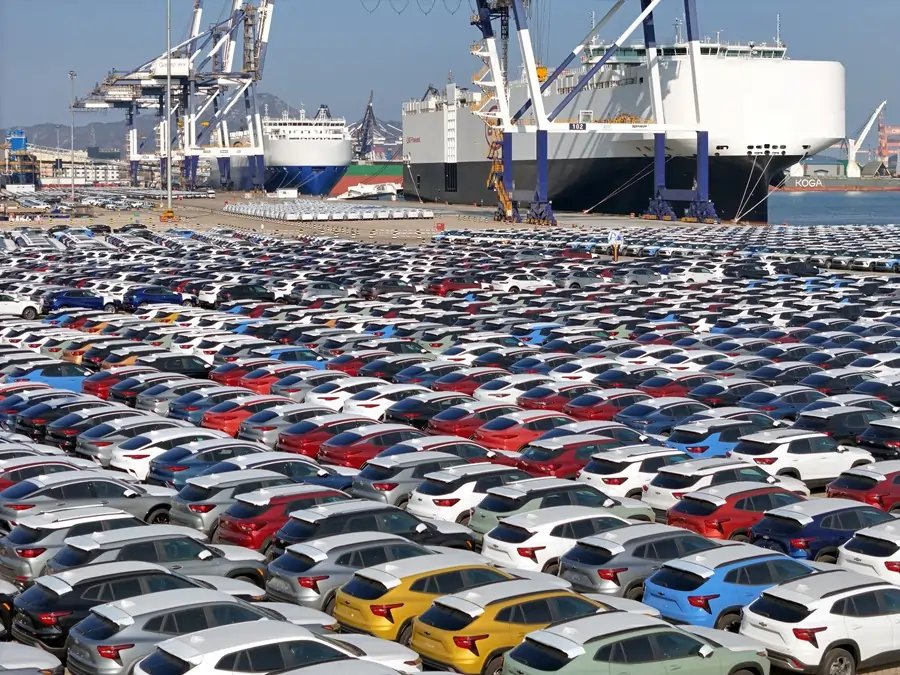Exclusive-China tells carmakers to pause investment in EU countries backing EV tariffs, sources say
Published by Jessica Weisman-Pitts
Posted on October 30, 2024
3 min readLast updated: January 29, 2026

Published by Jessica Weisman-Pitts
Posted on October 30, 2024
3 min readLast updated: January 29, 2026

SHANGHAI (Reuters) – China has told its automakers to halt big
SHANGHAI (Reuters) – China has told its automakers to halt big investment in European countries that support extra tariffs on Chinese-built electric vehicles, two people briefed about the matter said, a move likely to further divide Europe.
The new European Union tariffs of up to 45.3% came into effect on Wednesday after a year-long investigation that divided the bloc and prompted retaliation from Beijing.
Ten EU members including France, Poland and Italy supported tariffs in a vote this month, in which five members including Germany opposed them and 12 abstained.
As Beijing continues negotiations over an alternative to tariffs, Chinese automakers including BYD, SAIC, and Geely were told at a meeting held by the Ministry of Commerce on Oct. 10 that they should pause their heavy asset investment plans such as factories in countries that backed the proposal, said the people.
They declined to be named, as the meeting was not public.
Several foreign automakers also attended the meeting, where the participants were told to be prudent about their investments in countries that abstained from voting and were “encouraged” to invest in those that voted against the tariffs, the people said.
Geely declined to comment. SAIC, BYD and the commerce ministry did not immediately reply to requests for comment.
Italy and France are among EU countries that have been courting Chinese automakers for investments, but they have also warned of the risks that a flood of cheap Chinese EVs pose to European manufacturers.
State-owned SAIC, China’s second-largest auto exporter, is choosing a site for an EV factory in Europe and has been separately planning to open its second European parts centre in France this year to meet growing demand for its MG-brand cars.
The French government did not immediately reply to a request for comment.
The Italian government is in talks with Chery, China’s largest automaker by exports, and other Chinese automakers, including Dongfeng Motor, about potential investments.
Italy’s industry ministry declined to comment. Dongfeng and Chery didn’t immediately respond.
BYD is building a plant in Hungary, which voted against the tariffs. The Chinese EV giant has also been considering relocating its European headquarters from the Netherlands to Hungary due to cost concerns, two separate people with knowledge of the matter said.
Even before Beijing issued its guidance, Chinese companies were cautious about independently setting up production sites in Europe, as it requires large sums of investment and a deep understanding of local laws and culture.
The automakers were also told at the Oct. 10 meeting that they should avoid separate investment discussions with European governments and instead work together to hold collective talks, the people said.
The directive follows a similar warning in July when the commerce ministry advised China’s automakers not to invest in countries such as India and Turkey, and to be cautious with investments in Europe.
(Reporting by Zhang Yan and Kevin Krolicki; Editing by Miyoung Kim and Mark Potter)
Foreign investment refers to the investment made by individuals or entities in assets or businesses located in another country. It can take the form of direct investment, such as establishing a business, or portfolio investment, like purchasing stocks.
An electric vehicle (EV) is a type of vehicle that is powered by one or more electric motors, using energy typically stored in rechargeable batteries. EVs are considered more environmentally friendly than traditional gasoline-powered vehicles.
The automotive industry encompasses all companies and organizations involved in the design, development, manufacturing, marketing, and selling of motor vehicles. This includes automakers, suppliers, and service providers.
Explore more articles in the Technology category











